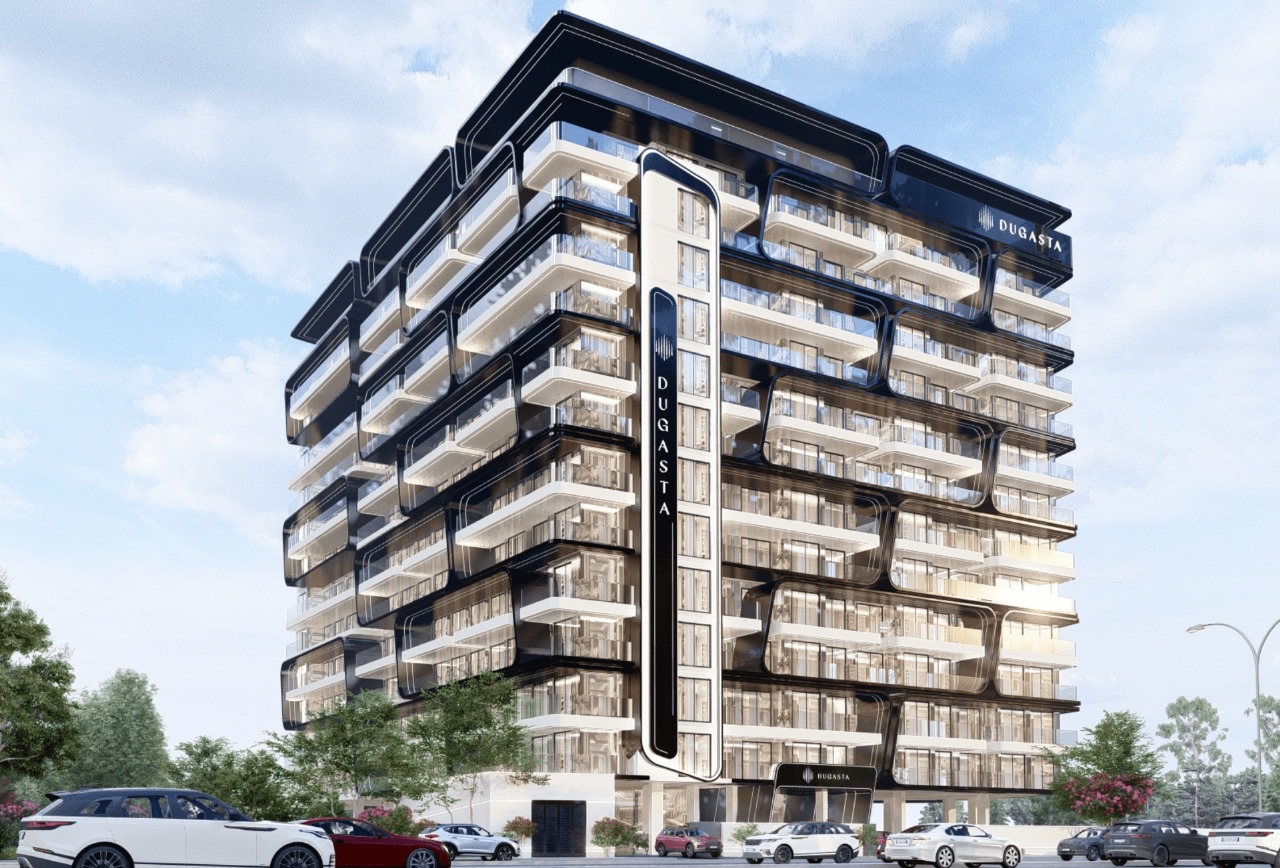Short term rental profits surge in Dubai for Nigerian investors
The splendor of the skyline of Dubai is more than reassuring, opportunities overflow in that place. Those opportunities have been sweetly rewarding in 2025. Short-term rental profits in Dubai have soared.
The combination of record tourist arrivals, investor-friendly regulations, and demand for luxury stays pushed the market into hyper-drive.
For Nigerian investors wishing to diversify their portfolio away from Nigeria, Dubai provides much more than just property. It offers a chance to build reliable, high-yield passive income. This isn’t just hype. It’s driven by real change.
From favorable
visa policies and tax-free returns
to user-friendly platforms like Airbnb, the game
has shifted. And it’s not too late to enter. In fact, now might be the best time High-demand
locations like Dubai Marina, Business Bay, and Jumeirah Village Circle are
already getting snatched up by investors.
But in order to win big, you need a plan. The right one. Especially if you're investing from Nigeria. That’s why we’ve created this guide to break down what’s working now, where the real profit is hiding, and what strategies Nigerian investors in Dubai can start using today.
- Why short-term rental profits in Dubai are trending
- Which areas deliver the highest ROI
- How to navigate the market as a Nigerian investor
- And tools you can use to scale faster and smarter
Why Short-Term Rentals Are Booming in Dubai
Dubai’s rental market is on fire and vacation rentals are leading the charge. The city’s evolution didn’t stop after Expo 2020. It accelerated. Now, the UAE is targeting 25 million tourists every year by 2025 and that number is looking more real than ever.
Dubai is not just accommodating tourists, it is creating tour repeaters. This is why vacation rentals and short-term Airbnb properties are flourishing.
1. Tourism Infrastructure keeps the Guests Coming
All the mega-events, from the Formula 1 Grand Prix to COP28 and the Dubai Shopping Festival, fill hotels and rentals alike.
With the world's best infrastructure supporting tourist
exploration and spending, visitors stay back longer. This leads to consistent
demand throughout the year, especially in tourist-favorite neighborhoods.
The Government Has Your Back
In direct contrast to most localities around the globe that put a cap on Airbnb-type rentals, Dubai's Department of Economy and Tourism (DET) instead removes all huddles in investing and creates an inducement for prospective investors.
The whole registration process for holiday homes has become less cumbersome with the slashing of unnecessary paperwork and compliance for the property owner.
3. The Returns Are Simply Better
Around alluring locations like Palm Jumeirah, holiday home rentals earn between 6-7% annual yield-version which could be completely viewed as stupendous compared with traditional rental yield markets such as Singapore and London.3. Smart Tech-means Smarter Earnings
Managing a holiday rental has never been so uncomplicated. Platforms like Airbnb, Booking.com, and Bayut let owners do everything regarding advertising and managing their listings with just a few taps.
So what does this mean for you as a Nigerian investor?
Rental properties in Dubai are not mere assets-any these are cash flow generators. Especially if you focus on furnished apartments for business travelers, digital nomads, and luxury seekers. With high demand, the right tech tools, and solid government backing, vacation rentals in Dubai are not just a passing fad. It’s the future.
Why Nigerian Investors Are Eyeing Dubai in 2025
For Nigerian investors, Dubai isn’t just attractive it’s a smart and strategic move in 2025. And here’s why it stands out.
1. Currency Diversification
One of the biggest troubles Nigerian investors face is the volatility of Naira. Rental income from projects in Dubai is assuring financial hedging as they are dollar-pegged. Thus your earnings are stable, even when the Naira loses ground. In fact, you can use rental sites like Airbnb and Booking.com to quote rental prices in USD, thereby inviting international guests and an even better upside.
2. A Stable Investor-Friendly Economy
The UAE's strong economy is reflected in its high credit rating, showcasing its stability and financial strength. To this blend add no property tax and no passive income taxes, and one very quickly realizes why Dubai is among the safest in wealth creation.
Where other emerging markets come burdened with disadvantage and are very risky, property investment in Dubai offers the soothing feeling of tourist heaven. You’re not just buying a home you’re buying into a secure financial ecosystem.
3. Long-Term Ownership
Dubai isn’t only open to foreign investors it welcomes them. Nigerian buyers benefit from:
- Full freehold ownership (you own the property 100%)
- The 10-year Golden Visa for long-term stability
- No income or property taxes keeping your gains untouched
4. A Gateway to Global Wealth
Investing in Dubai property opens the door to international real estate portfolios. The market is highly liquid, which means you can buy and sell with ease. Hotspots like Dubai Marina, JVC, and Downtown Dubai show annual property appreciation of up to 9%, offering both capital growth and cash flow. That’s a powerful combo for long-term success.
5. Demand from Nigerian Investors Is Booming
Up to $6 billion has been invested in Dubai's property market by Nigerians over the past three years. Investors are no longer watching from the sidelines they’re moving in.
Because smart money is chasing fast returns and global income streams.
That’s why most strategies for Nigerian investors in Dubai now focus on Airbnb-ready studios, serviced apartments, and high-ROI rental assets. These properties are easy to manage and start earning from Day 1.
Top Areas in Dubai for Short-Term Rental ROI
In short-term
rentals, location isn’t just important
it’s everything. If you want strong cash flow and high
occupancy, you need to buy where demand already exists or is quickly rising.
Downtown
Dubai Known for its iconic skyline, Burj Khalifa, and luxury experiences, it
attracts high-end tourists and event-goers year-round. Here you can charge very
high nightly rates, say AED 800 to AED 1,500, especially during event times or
festive periods.
Next in line
is Dubai Marina-a reliable destination to spend longer time with family
rentals. The place offers a scenic waterfront and has a family-friendly
atmosphere. Walkability, beach access, and a strong long-term appeal are also
qualities that make this area excellent for rental property investments.
Another area
of affordable entry point is Jumeirah Village Circle (JVC). It grows very fast,
very popular among budget travelers and group bookings, and offers the highest
yields yearly.
You can get a
quality one-bedroom apartment for as low as AED 700K, making it ideal for first-time investors from
Nigeria looking for strong returns.
For business-focused travelers,
Business Bay is the hub. It is somewhat near
Downtown and caters for a corporate audience.
Besides these
prominent zones, Dubai Hills
Estate
and many of the other developing areas are also worth checking out. These Dubai
properties are off-plan and still under development. However, new schools,
hospitals, and metro links will be opened very soon, and so this area is
predicted to have good rental yields in the future as it matures.
Whatever your investment plan is, look for apartments that give the impression of a luxury resort- pools, gyms, and 24-7 security. And make sure they’re near a metro station. That convenience can bump up both your occupancy rate and your nightly rate.
How to Get Started as a Nigerian Investor
Getting
started with property investment in Dubai
might sound complicated but it’s actually a clear, step-by-step process. And
once you understand the system, it becomes much easier to navigate.
You need to
define your investment goals.
What do you want out of this property? For example, many Nigerian investors aim
for passive income of AED 60,000 or
more per year. That gives you a clear number to work toward.
Next, use
smart tools like Dubai REST to understand the local rental market. The application reveals such parameters such as
occupancy rates and nightly prices in different sections, thus, it gives you
the little secret behind the workables and the non-workables.
Once the
study is over, the next step is to understand the associated legality. For the
good news, non-resident owners may legally acquire freehold properties in over
60 designated zones in Dubai, which means you have full ownership as free as a
bird.
To run a
short-term rental (Airbnb style), you need to obtain a license from the Dubai Department of
Economy and Tourism (DET).
Once you
secure your property, you will now be into the operations. Hiring a
professional hosting agency can do most to ease your life. They deal with
everything from guest check-ins, cleaning, and maintenance, to price
optimisation so you can simply forget about the nitty-gritty.
Your rental
is professionally managed and keeps on making you money even if you are in
Nigeria.
One more
thing don’t forget visa planning
Investment
in real estate of 1 million AED or more means a 10-year residency visa under
UAE law. That alone is a big ticket item for anyone who intends to visit often,
do business in the UAE, or wants long-term access to the region.
So, if you are serious about making passive income through Dubai real estate, these are no longer recommendations, they are your path to success.
Key Considerations & Common Mistakes to Avoid
Enter the Dubai short-term rental market only after understanding the
associated risks and steering clear of blunders that could cost you a fortune.
They aren't going to kill the deal, however, they demand focus if you
want to protect your income and see smooth growth in your investment.
1. Licensing Is Not an Option
Operating short-term rentals without permits puts you in a risky situation, which could turn expensive too. A fine for operating without a permit can even go as high as AED 50,000. Always register your property with the Department of Economy and Tourism (DET) even if only occasionally rented.
Having a permit keeps you in the clear with very high-end, reputed
online platforms.
2. Watch for Hidden Costs
What you pay for the property isn’t your only expense. Be ready to spend about 20% extra on furnishing, maintenance, and property management fees. If you're targeting high-paying guests, look out! Your marketing or advertising expenses could account for an additional 5% to 20% of your operating income!
3. Choose Location
Carefully
Not all areas of Dubai are good for short-term rentals. While the suburbs may appear to have cheaper options, they are often accompanied by low tourist demand and poor occupancy.
Instead, you should concentrate on heavy traffic areas such as Downtown Dubai, Dubai Marina or JVC, where travelers were already intending to stay. These locations give better visibility and stronger returns.
4. Avoid Overleveraging
Dubai’s high rental yields attract investors quickly but don’t rush in with too much debt. Mortgage rates are raised, your profit margins can get shrunk at the speed of lightning. Safety-wise, you should be targeting 30% cash-on-cash return.
5. Don’t Try to Manage Everything Yourself
Managing bookings, guests, cleanings, and repairs from Nigeria isn’t easy. In fact, it often leads to bad reviews and revenue losses. Instead, work with an established local property manager. They do it all from pricing to guest check-ins. You earn passive income without the hassle.
The short-term rental boom in Dubai is no accident-it is a product of enlightened policies and unyielding growth in tourism. For Nigerian investors, this is a rare trifecta-high yield, asset appreciation, and wealth preservation in a stable currency.
With short-term rental profits in Dubai outperforming global markets and Nigerian interest accelerating, delaying could mean missing prime inventory or facing rising prices. Now is the time to deploy smart Strategies for Nigerian Investors in Dubai.
Whether you target Downtown’s luxury stays or JVC’s budget-friendly units, the path to short-term rental profits in Dubai is clearer than ever.
Ready to claim your stake?

.png)


